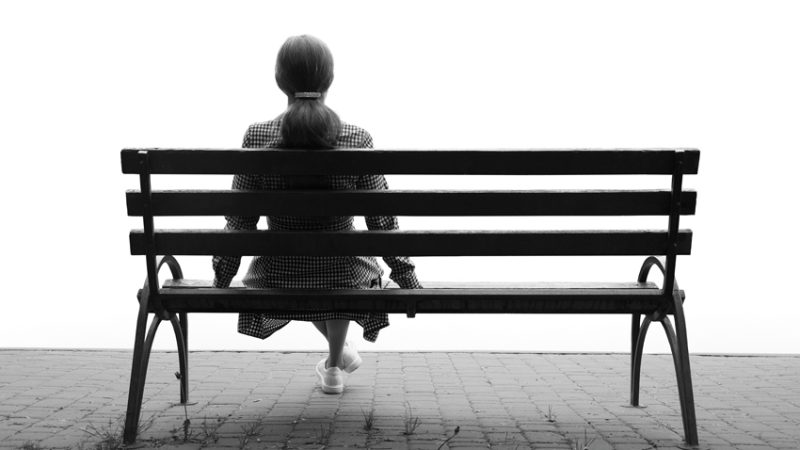How Secondary Schools can Support Students Suffering from Bereavement

Coping with the death of a loved one comes with a whole heap of extra baggage for teenagers, explains Dawn Jotham – and here’s how schools can help…

- by Dawn Jotham

It’s an unpleasant thought experiment, but imagine you’ve recently lost a loved one.
You’ve experienced sorrow before, but as hard as you try, this particular brand of grief is not something you can check at the door.
There’s no on and off switch or shortcut to regaining some semblance of normality. Grief, particularly in the early stages, is something you’ll carry with you through all facets of your life.
Now imagine you’re experiencing this grief during your teenage years. Making sense of this new mix of feelings adds even more confusion to a period in your life that is already filled to the brim with emotional turmoil.
What’s more, for some reason, your recent loss has your friends and go-to support system walking on eggshells because they don’t know what to say or how to behave. You feel alone.
A unique experience
After speaking with countless people about the death of a loved one, I know all too well that no two experiences will be the same, yet the picture I’ve painted continues to be a common thread.
It’s uncomfortable territory to navigate at the best of times, but it’s a much more complex experience as a teenager – and as formative actors in their lives, we, as the school community, have a responsibility to know how we can provide much-needed support.
The first crucial point to make about bereavement is that there is no set pattern for how grief affects someone – each individual will cope with death in their own way.
It is also important to note that grief has no time frame and can have long and/or short-term impacts on an individual, family, or community.
According to Di Stubbs, practitioner at Winston’s Wish, a leading national bereavement charity, the impact of loss can be informed by the type of relationship; the context of the death (for example, was it foreseen or unexpected); and a range of other factors including mental health, emotional fortitude, and other familial dynamics – yet there are still no hard and fast rules about how someone will react.
“We have come a long way as a society, from thinking that time heals all wounds or that there are various stages of grief,” she explains. “Grief is a personal and ongoing process, and as time goes on, people expand their emotional capacity to make room for new feelings, experiences, and joys – often while still experiencing grief.”
Personal and public
There’s also a notable difference between the grief that comes with losing a loved one and the feeling of loss that follows a public tragedy.
If the death is personal to the student, their friends or family may not have felt, or understood, the emotions experienced, and while it is common to experience an outpouring of empathy, this is often short-lived.
As Isla*, a student who experienced the death of her best friend, remembers, “my friends did their best to be supportive but none of us really knew what to do, or how to handle the situation. Everyone was always sympathetic, but they were unable to offer relatable empathy”.
On the other hand, public tragedies will have students reacting in many ways, and the role of the school will be varied. We see this particularly following the death of a teacher or pupil, prompting a response from the school community at large.
After working with teenagers following the bombing at Manchester Arena, Di Stubbs knows the ripple effect a public tragedy can provoke.
“Grief is not limited to the loss of a loved one,” she points out. “Public tragedies can also be unsettling and disturbing for teenagers, reminding them of previous losses or alerting them to future griefs.”
There’s no playbook for predicting how the bereavement process will unfold. Every pupil’s needs will be different and the school response should be malleable enough to accommodate accordingly.
Emotionally charged
Adolescence is a highly emotionally charged time – the loss of childhood itself tends to be a painful process for teenagers.
The conflict between independence and dependence can spark feelings of vulnerability and insecurity, anxiety, frustration, and rebellion, often resulting in emotional duress.
Consequently, having access to safe environments where they can emotionally express themselves is important in supporting teenagers to overcome challenges, including grief, on their journey to adulthood.
When teenagers experience grief, the addition of an influx of sorrow to all this emotional turmoil often becomes overwhelming.
It’s not uncommon for teenagers to have difficulty expressing themselves – we know this from our interactions with them inside and outside the classroom – however, grief produces complicated feelings that are particularly difficult to talk about, so keeping an eye out for subtle shifts in behaviour is a good starting point.
As Felicity*, another student who experienced a close loss during high school reports, “when I found out my friend was poorly, I was very shocked and upset.
Being so young, this wasn’t something I had heard of, or experienced much of, and looking back, the support I received from my school was a great comfort”.
Avoidance tactics
Following a death, teenagers may experience increased anxiety, sadness, guilt, or anger. They may also become withdrawn and employ avoidance tactics with activities in class or even socially with friends.
“The physical and emotional impacts of grief are far-reaching and can extend from uncertainty about the future and difficulty focusing, to physical symptoms like recurring headaches and aches and pains”, explains Di Stubbs.
Subsequently, it’s important for school staff to remember that both verbal and non-verbal communication are indicators of what’s happening in a teenager’s life.
“Teenagers can appear disengaged with school at the best of times however, the school environment provides a sense of normality and continuity, which is an invaluable asset during the bereavement process,” concludes Di.
“With this in mind, acknowledging the loss, and creating a culture of empathy, keen observation and no judgement, should set teachers and school staff up to succeed in best practice grief support”.
4 ways to support a grieving teen at school
- Be observant
Students spend more time at school than in any other environment, making teachers and staff perfectly positioned to observe subtle shifts in behaviour. Teenagers can lack confidence in proactively seeking support, so it may fall to school staff to make the first move. - Create a dialogue
The most important thing that anyone can do for teenagers experiencing grief, is to acknowledge the death and offer them the chance to talk about it on their terms. Creating a dialogue will also allow you to understand the extent of the sorrow. - Adapt study loads
“I was never given any extra time to complete my homework or sit exams. I was working to the same time frames as the rest of the students, and while I managed to pass my subjects, it was a lot to manage while battling my own emotions”, recalls Isla. Allowing flexibility in terms of study loads and deadlines can make a considerable difference to the bereavement process. Contextualising the grief in this manner can ease some of the burden. - Walk the walk
Identifying shifts in behaviour and creating a safe space for students to express themselves is one thing, but schools can go even further by developing a bereavement policy that will empower school staff to respond proactively. This can also provide the framework for support to be extended to the students’ family and GP, or to connect them with national charities like Winston’s Wish and Cruse Bereavement Care.
If you are struggling with grief, or know someone who is, please contact the Winston’s Wish hotline: 0808 802 0021, or Cruse Bereavement Care: 0808 808 1677.
Dawn Jotham worked in an educational establishment for 12 years as a head of year, lead for student pastoral care and designated senior person for safeguarding; she is currently a pastoral care expert at EduCare (@educarenews).
*Names have been changed to protect students’ anonymity











